 Market Insights
Market Insights
 2025-05-30
2025-05-30
As a "golden springboard" for Middle Eastern trade, the United Arab Emirates market, with its strong purchasing power and regional influence, has become a must-win battleground for foreign trade professionals.

Don't Rely Solely on Google for Traffic
1. Local Search Engines in the United Arab Emirates
In addition to Google, try UAE-based search engines like Maktoob and Ayna, which can help you find potential customers more easily.
2. B2B Platforms
Register on local UAE B2B platforms such as Dubai Trade and Etihad to publish product information and find potential customers.
3. Social Media
People in the United Arab Emirates are very active on social media. Platforms like LinkedIn, Facebook, and TikTok are excellent tools for building relationships and promoting products.
4. Trade Fairs
Participating in industry-specific trade fairs in the United Arab Emirates is a great opportunity to meet customers and promote your products.
5. Google Maps
Use product keywords to search for potential target customers across more than 200 countries and over 500 major search engines. You can often retrieve websites, emails, phone numbers, and even Facebook or WhatsApp accounts.
6. UAE Yellow Pages Websites
·Yello.ae
One of the most popular directories in the United Arab Emirates, listing over 320,000 local businesses, including names, addresses, phone numbers, and websites.
·Yellowpages.ae
A UAE B2B platform with over 1,300 categories and plenty of local company data. It's especially useful for finding businesses with WhatsApp contacts—ideal for foreign trade enterprises.
·UAECompanies.ae
An online platform providing information on UAE businesses such as manufacturers, suppliers, wholesalers, exporters, and importers. It includes company names, emails, phone numbers, and addresses.
·ReachUAE.com
This comprehensive directory offers contact details for UAE brands, products, and suppliers across all Emirates including Dubai, Abu Dhabi, and Sharjah. You can view emails, websites, and even click directly to chat via WhatsApp.
·EmiratesBD.ae
More than just a business search platform, it provides local business listings, contact details, and integrates social updates and local event info.
·ATNinfo.com
A local business directory where you can search by keyword or industry. Most listings include company names, addresses, phone numbers, websites, and sometimes WhatsApp.
·Aiwa.ae
A smaller local directory, useful for industry-specific searches. Listings typically include company names and contact info.
·Yellow Pages UAE
Touted as one of the largest B2B portals and online business directories in the United Arab Emirates. You can search by region, product, or industry to find manufacturers, suppliers, and wholesalers.
Trade Data Is More Powerful Than You Think
Despite the usefulness of Google, directories, and Maps, each comes with limitations:
1. Messy Information – Too many mixed results; filtering manually is time-consuming and inefficient.
2. Passive Marketing – You'll only find businesses with online exposure. High-quality, low-profile clients might be missed.
3. Limited Details – These tools often only provide basic contact info and lack details like trade volume or frequency.
Trade data, derived from official import/export records, fills these gaps. It offers major advantages:
1. Structured Data
Platforms like Tendata organize UAE trade records. Simply input a product keyword to retrieve thousands of verified importers and exporters from the past 3–12 months—far more efficient than manual methods. Even companies without marketing presence are included if they have trade activity.
>>Get A Free Demo from Tendata<<
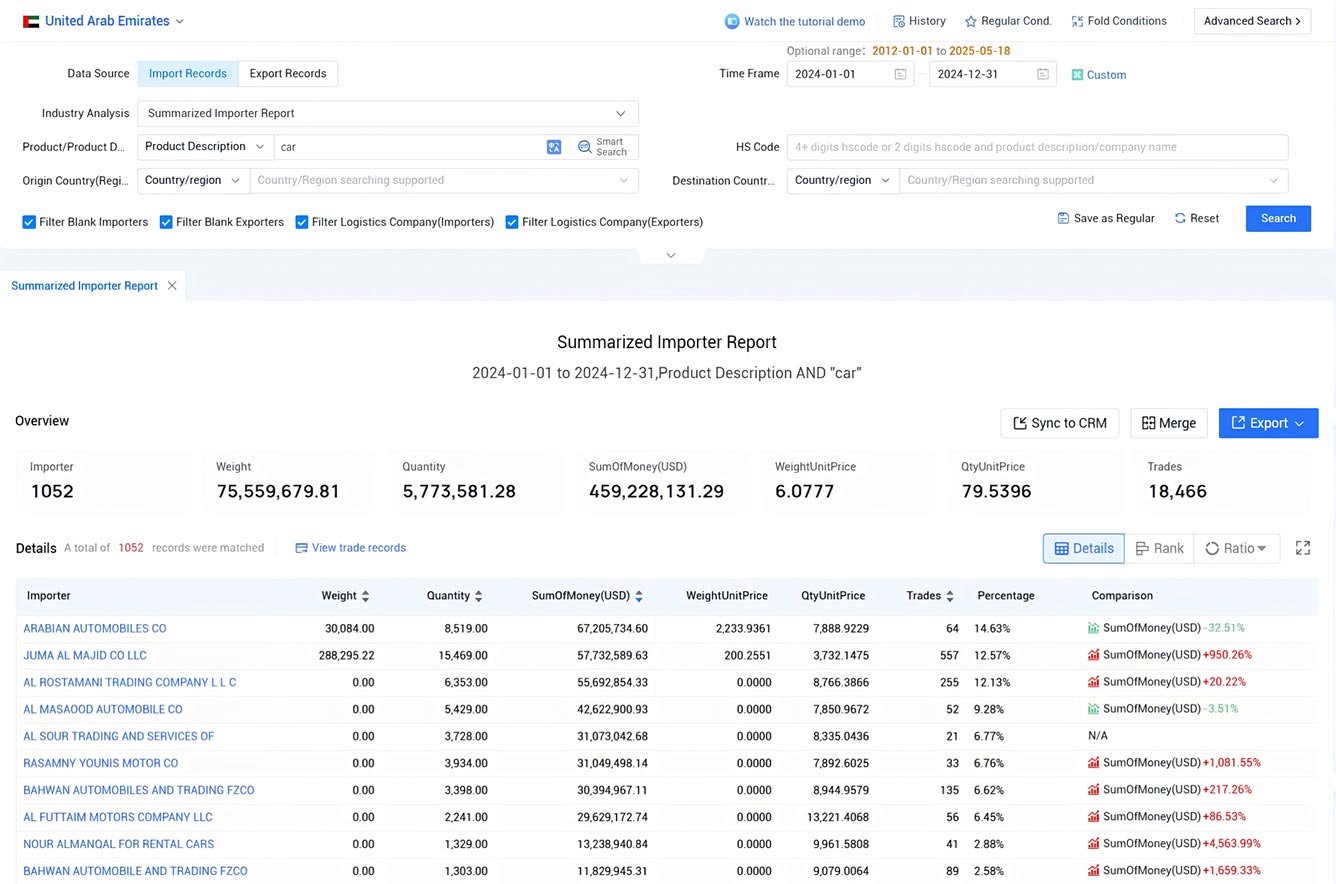
2. Purchase Behavior Insights
Analyze clients' historical purchasing habits—volume, cycle, preferred suppliers, product specifics (including HS codes)—to tailor pricing and sales strategies.
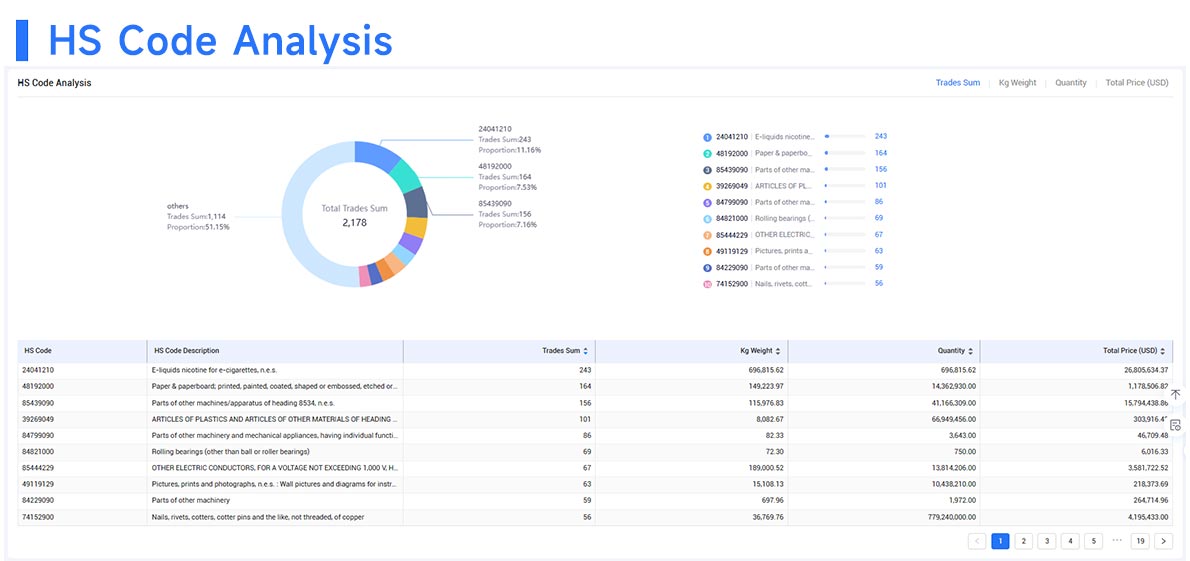
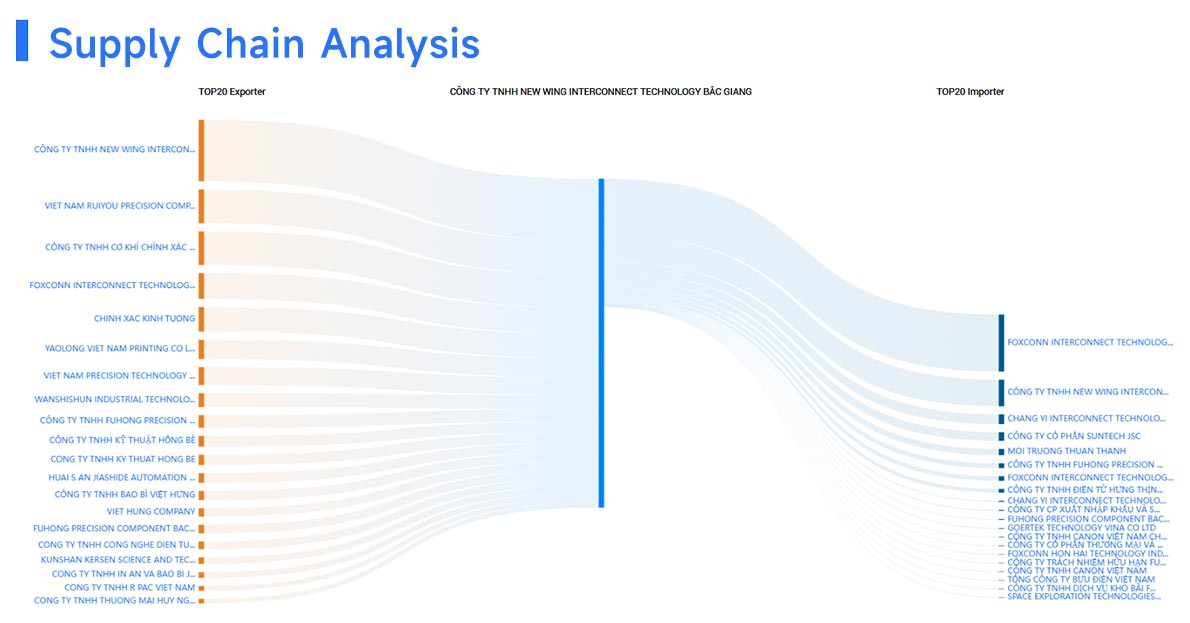
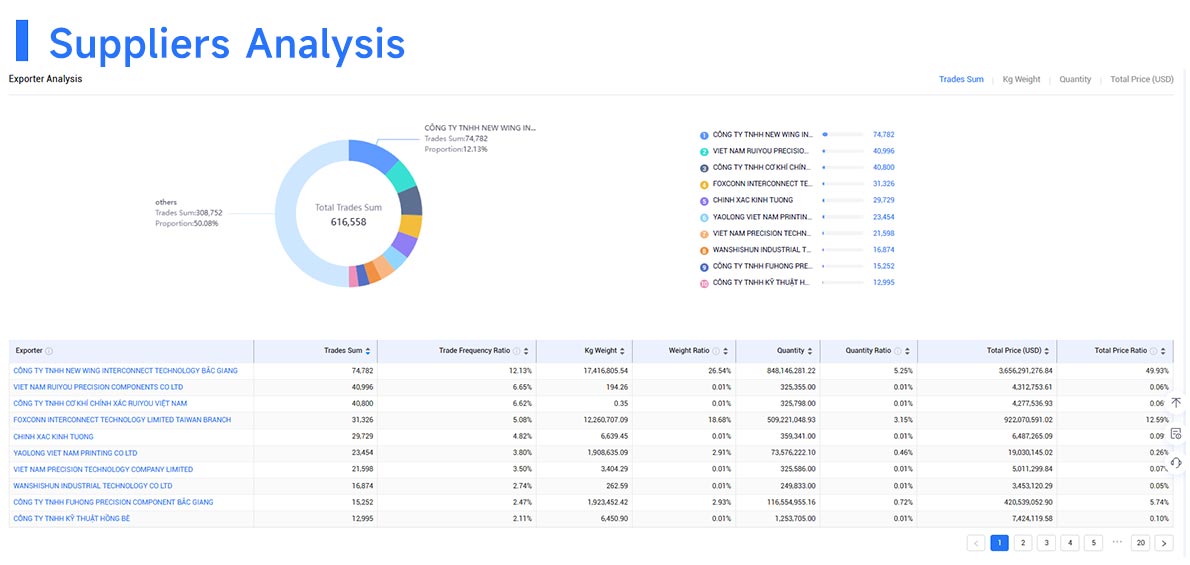
3. Strategic Customer Development
Uncover competitor client lists and market distribution. Use this intel to “overtake on the curve,” conduct targeted market research, and enter emerging or niche markets with precision.
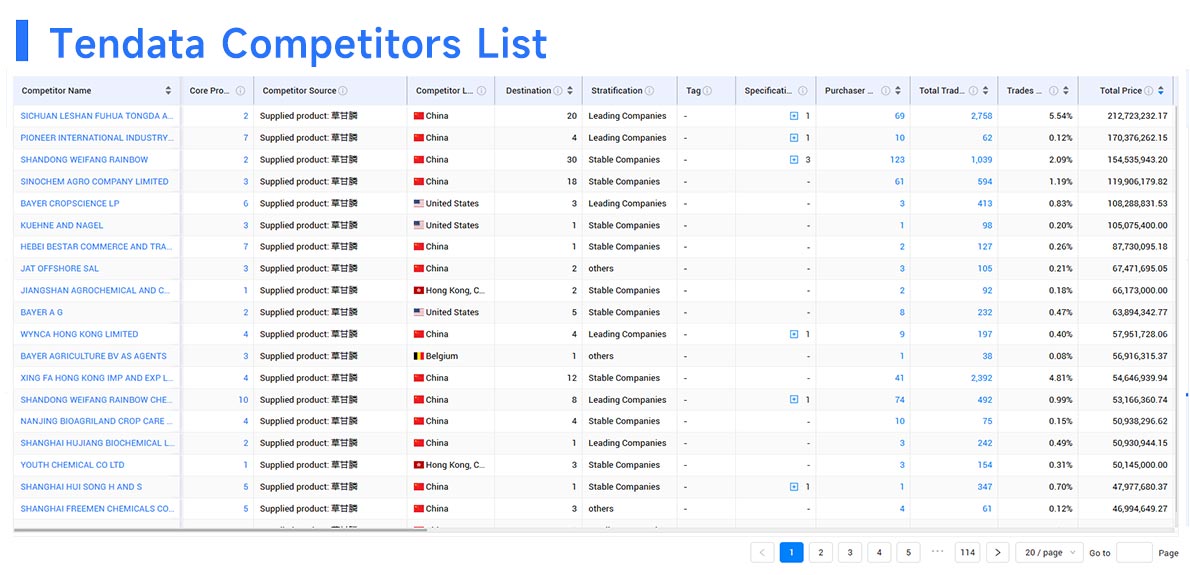
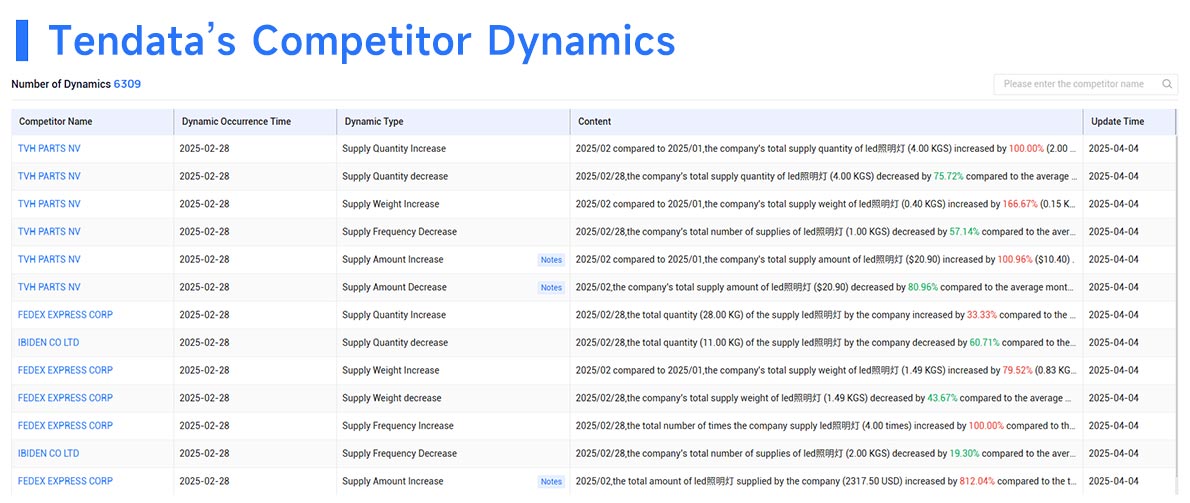
By analyzing UAE trade data, you can identify which companies are actively importing your product category. These insights often include importer names, volume, frequency, and pricing—valuable information to find potential customers.
Note: UAE trade data is not publicly available. It must be obtained via indirect sources such as Tendata. These records typically contain importer/exporter names, HS codes, product descriptions, origin/destination countries, quantities, prices, and weights to support your customer acquisition strategy.
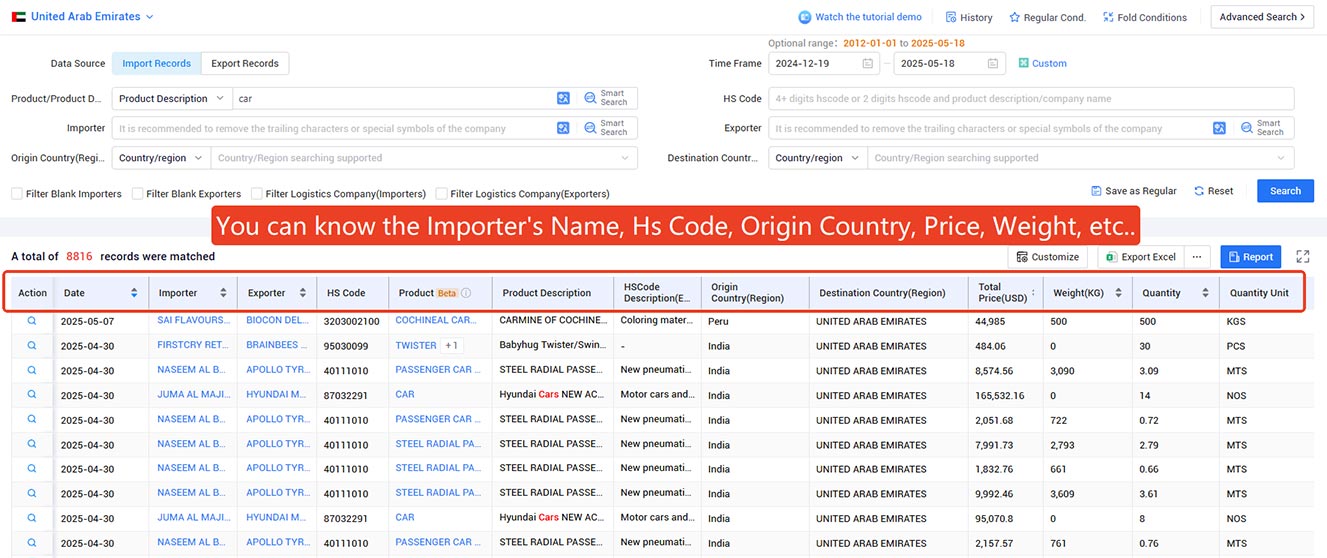
Category
Leave Message for Demo Request or Questions


 T-info
T-info T-discovery
T-discovery

 My
Tendata
My
Tendata Market Analysis
Market Analysis Customer
Development
Customer
Development Competitor
Monitoring
Competitor
Monitoring Customer Relationship
Customer Relationship





































































































































